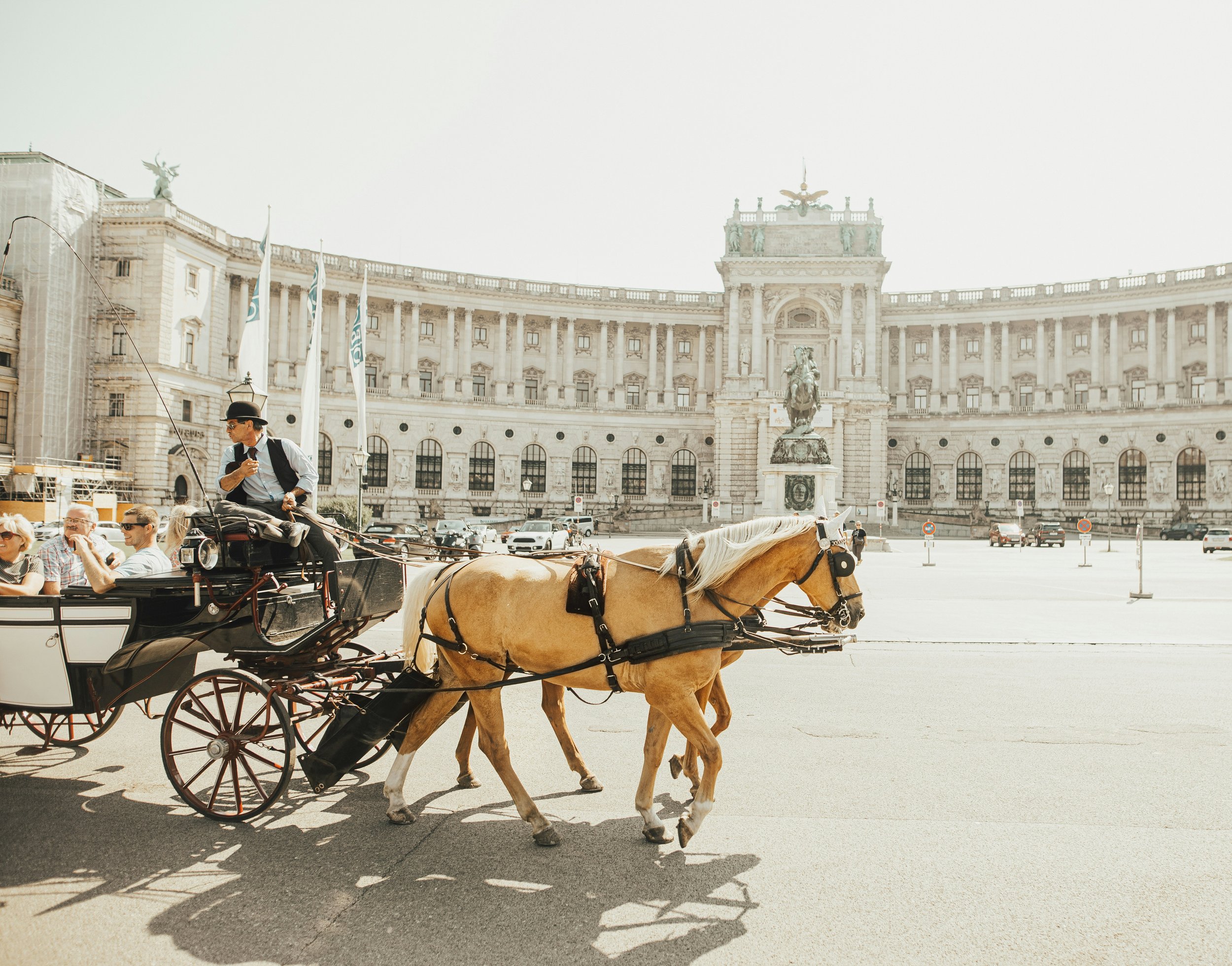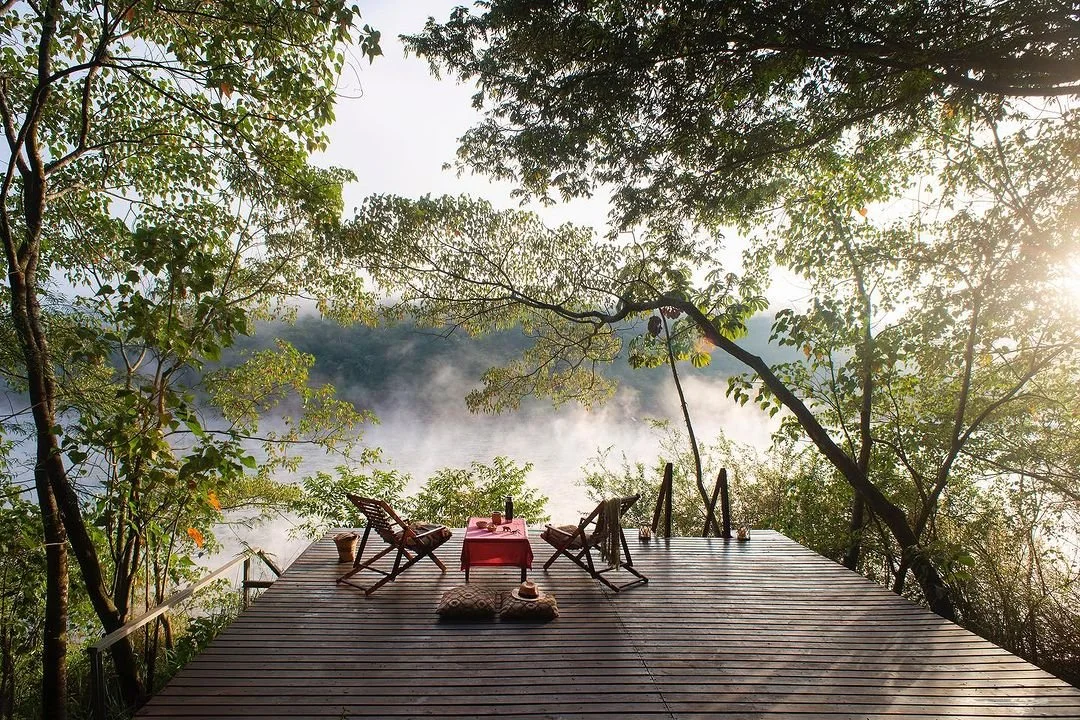— Written primarily based on exclusive insights from Ananda In the Himalayas.
Ananda
In our fast-paced world, the impact of pollution on our health is indisputable. From respiratory issues to chronic diseases, the need to address these concerns has never been more critical. In this very insightful interview, the wellness experts at Ananda shared profound Ayurvedic practices aimed at fortifying the body against the deleterious effects of pollution, providing a roadmap to resilience in the face of environmental challenges.
Their insights into incorporating Ayurvedic practices into our daily lives, rooted in ancient wisdom, provide a simple yet powerful way to reduce the harmful effects of pollution and prioritize our well-being. Join us in exploring how these simple Ayurvedic practices can guide us towards a healthier and more balanced lifestyle in the face of our increasingly toxic environment.
Daily Ayurvedic Practices for Pollution Resilience
The spike in air pollution brings along a plethora of health issues like cough, shortness of breath, skin diseases and many severe cases of chronic pulmonary diseases. Ayurveda explains environmental pollution and toxicity under the heading of Janapadodhwamsa; ‘Janapad” means a group of people or community and ‘Dhwamsa’ means demolition. Janapadodhwamsa or environmental pollution and toxicity branches into four elements, which are, Vayu (air), Jala (water), Desha (place or soil), and Kaala (season).
The ancient text of Ayurveda, Charaka Samhita texts says that during the time when pollution levels are at their peak, to follow the Ayurvedic daily routine for increased immunity is recommended by including the following suggestions. At Ananda in the Himalayas, these suggestions are practised and inculcated in the daily routines of the guests on wellness programmes.
1. Nasyam for Respiratory Health
It is a powerful detoxifying practice to boosts sensory health by cleansing the upper respiratory passage. Nasyam means the instillation of medicated oil or ghee through the nasal passage. The excess toxins accumulated in the throat, nose and head are eliminated by the practice. For practising Nasyam, Anu Thailam is considered to be the right choice.
2. Abhyanga for Skin Nourishment
Traditional science recommends performing abhyanga, an Ayurvedic massage using sesame oil, on a regular basis. The practice not only nourishes the depleted skin health but also rejuvenates the entire system with energy.
3. Ubatan for Skin Protection
A medicated homemade scrub or paste is an age-old tradition to improve skin health and complexion. It holds a significant place in the context of environmental pollutants’ impact on our skin. The word ‘ubtan’ is derived from the Sanskrit word ‘utkanti’, which means to brighten or enhance the complexion. This traditional paste is made with a combination of natural ingredients, which are known for their numerous benefits for the skin.
4. Daily Regimen Practices
Daily regimen practices that prepare us to deal with environmental pollution are:
Drink hot water upon waking up in the morning. Sip tea during the day with cardamom, cinnamon, and Tulsi (holy basil) to keep the digestion ability strong.
Avoid any cold foods and drinks, which dampen digestive ability and clog the system.
Practice breathing techniques called pranayama to strengthen the respiratory system, which helps in combating the ill effects of air pollution.
Practice Yoga and Surya namaskar (sun salutations) to create physical strength.
Practice meditation to reduce stress levels.
Dietary Ayurvedic Practices for Detoxification
Ayurveda recommends following the below-mentioned principles of diet which help in resetting gut health from the impact of pollution:
1. Seasonal and Balanced Diet
Eating seasonal fruits and vegetables counteracts environmental triggers that lead to toxin formation (Ama).
2. Avoidance of Heavy Foods
Refraining from oily and fried foods prevents dampening of digestive ability and system clogging.
3. Inclusion of All Rasas
Incorporating all six flavours (Rasas) in the daily diet plan—sweet, sour, salty, pungent, astringent, and bitter—supports healthy digestion.
4. Vegetarian Diet with Specific Exclusions
Adopting a vegetarian diet with soups, liquid porridges, and cooked vegetables aids in detoxification, avoiding heavy grains like chickpeas, kidney beans, or black gram pulses.
5. Incorporation of Detoxifying Herbs and Spices
Herbs and spices such as turmeric, neem, ginger, Amalaki, cinnamon, kutaja, and bhunimba play a crucial role in detoxification and immunity building.
The Role of Holistic Wellness Retreats in Detoxification
When a person is exposed to chronic pollution for an extended period of time, various systems are impacted, and symptoms such as low energy, low appetite, burning feeling in the eyes, itching of the skin, recurrent sneezing, or respiratory conditions may develop. Whereas many people seek immediate relief with antibiotics, steroids, or antihistamines, ayurveda suggests detoxification therapies such as panchakarma methods, ayurveda shamana therapies, and Rasayana Herbs to prevent the illness from recurring or progressing.
Wellness programmes at Ananda focus on detoxifying the system through Shodhana (purificatory) therapies, that help in developing immunity. Ayurveda strongly recommends a city dweller go through the ritual of a purificatory practice under the supervision of an experienced physician periodically, to combat the ill effects of pollution.
Panchakarma, or purifying treatments such as Vamana (emesis), Virechana (purgation), Basti (medicated enema), and Nasya (taking medications through the nasal channel), rasayana, and adhering to the sadavritta increase the body’s ability to avoid and control the effect of environmental pollution seeping in the through the air, water, land and seasonal change.
Ananda’s 21-night panchakarma programme or a 7-night Ayurveda Rejuvenation are the perfect path to completely cleanse and detoxify the system by flushing out the toxins accumulated due to pollution.
If you wish to learn more about Ananda’s 21-night wellness retreat or any other wellness programs, Contact Us. Book your stay with us to get exclusive offers and additional benefits during your stay.


















































For those who’ve done it all and are now seeking something quietly radical—this story introduces a retreat that doesn’t just heal, it redefines what it means to feel well. Expect personal insights, unseen tech-meets-tradition philosophies, and a place in Kerala where the future of wellness is already unfolding.